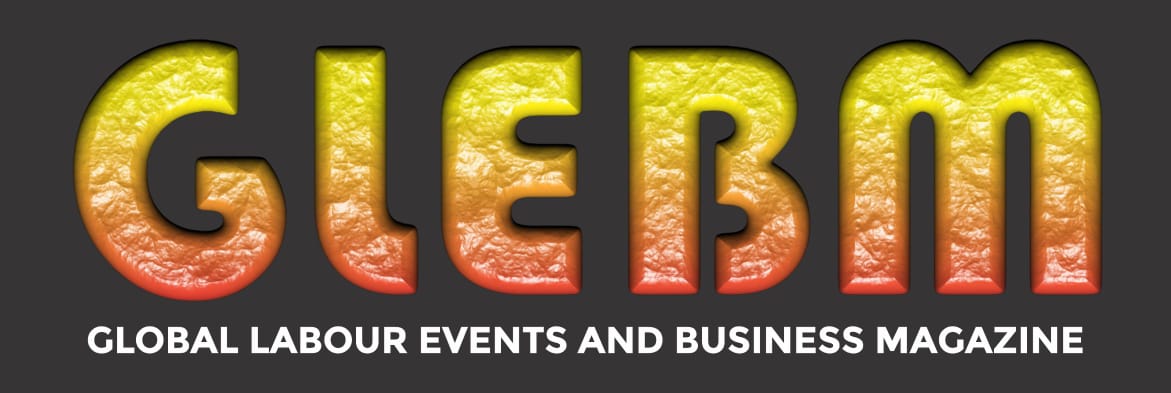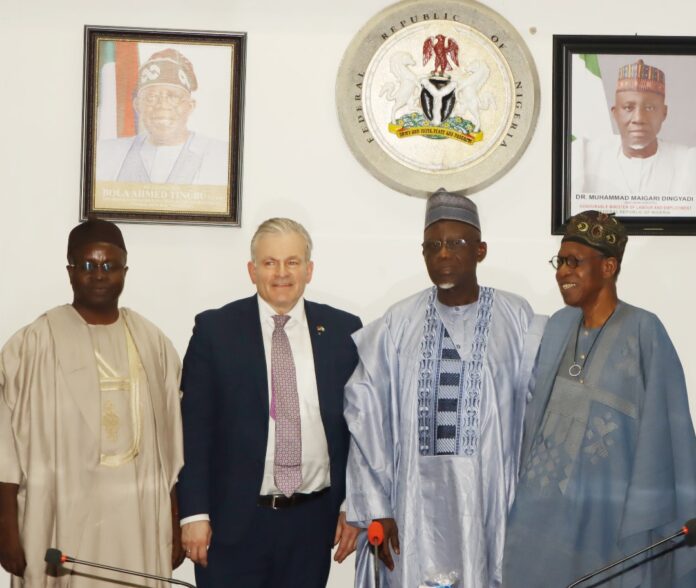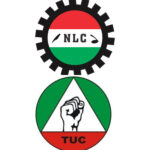By Darasimi K.
The Federal Government has reaffirmed its commitment to ensuring that the migration of Nigerians to other countries is conducted legally, prioritizing not only economic benefits but also the well-being and safety of migrants.
This assurance was given by the Minister of Labour and Employment, Muhammad Maigari Dingyadi, during a meeting in Abuja with a delegation from the IHK Giessen-Friedberg Chamber of Commerce and Industry, Germany. The visit, facilitated by former Minister of Information and Culture, Alhaji Lai Mohammed, focused on streamlining legitimate labour migration and promoting dual vocational training as a driver of economic growth.
Dingyadi emphasized the Federal Government’s commitment to encouraging legal migration pathways, ensuring that Nigerian workers can safely contribute to both their home country and their host nations. He highlighted the importance of vocational training in providing employment opportunities and assured the delegation of Nigeria’s readiness to collaborate with the German Chamber.
“We appreciate the time you have taken to share the opportunities within your chamber. Labour migration and vocational skills development are part of the core mandate of this ministry. We are open to discussions on how we can mutually benefit from these initiatives,” Dingyadi stated.
The Minister stressed that vocational training plays a crucial role in job creation, equipping Nigerian youth with the necessary skills to become self-employed or secure jobs abroad. He noted that migrants who receive specialized training abroad often return to contribute to skills development in Nigeria, fostering long-term economic benefits.
Germany’s Dual Vocational Training Model in Nigeria
Introducing the delegation, Lai Mohammed highlighted the IHK Giessen-Friedberg Chamber’s ongoing efforts to enhance economic cooperation between Germany and Nigeria. He noted that in 2012, the Chamber initiated the Dual Vocational Education Project, which brought elements of Germany’s renowned dual vocational training system to Nigeria in collaboration with the Abuja, Ogun, and Lagos Chambers of Commerce.
Mohammed emphasized that Germany’s dual vocational training model, which blends theoretical education with hands-on industry experience, provides an ideal blueprint for enhancing workforce skills, boosting employability, and reducing unemployment in Nigeria.
Dr. Mathias Leder, President of IHK Giessen-Friedberg, reiterated the importance of language skills in facilitating the integration of Nigerian migrants into the German workforce. He revealed that an impressive 98% of apprentices who complete Germany’s free dual vocational training program secure job offers, highlighting the potential benefits for Nigerian participants.
The discussions signal a strengthened partnership between Nigeria and Germany, as both nations work towards expanding vocational education, facilitating legal migration, and creating employment opportunities for Nigerian youths.




